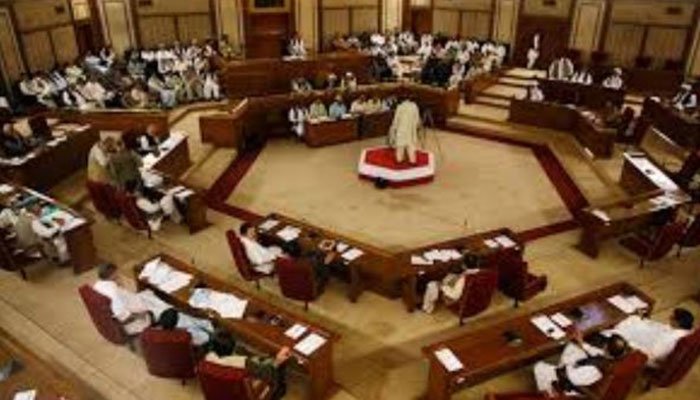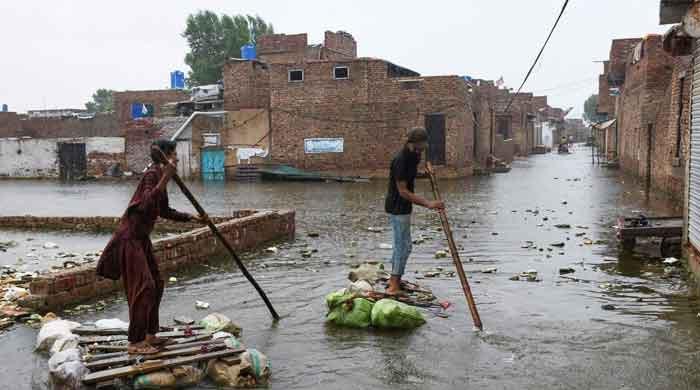No-confidence motion in Balochistan: Will the ‘peace pact’ last?
In a dramatic and abrupt move, around 16 lawmakers from Balochistan have submitted a ‘no-confidence’ motion against the incumbent CM
September 29, 2021

Balochistan has been lurching from one weak government to another. The post-2018 election era, too, has been reminiscent of the previous governments that had completed tenures with hiccups.
Political gimmickry played in the provincial assembly has always engendered social chaos at grassroots and a political upheaval at the top. Thus, the current political upheaval in the province is an addition to the already prevailing political uncertainty in the provincial assembly and a chaotic situation at the grassroots.
In a dramatic and abrupt move, around 16 lawmakers from Balochistan Assembly have jointly submitted a ‘no-confidence’ motion against the incumbent chief minister. Interestingly, the lawmakers include disgruntled members of the CM’s Balochistan Awami Party (BAP). This has made political dealing difficult for the CM. However, with the efforts of Chairman Senate Sadiq Sanjrani, the opposition and the CM have reached a ‘peace’ pact. According to the opposition, if Jam Kamal fails to redress their reservations, which they have put in front of the CM, they will rethink their strategy and intensify efforts to dethrone him through a ‘no-confidence’ motion.
Article 136 of the constitution gives the opposition the right to move a no-confidence motion. Nevertheless, with the practice of this constitutional right which empowers the opposition to move a motion it also puts a responsibility on the shoulders of the lawmakers that they must not move a motion at the cost of the will and trust of the people. For instance, the opposition does not seem to have a future course in case they succeed in removing the CM. Given this, putting old wine – promising people basic amenities – in a new bottle might not work anymore for the opposition as a growing majority of people, specifically the youth, has been sensitised to political gimmickry.
Moreover, the no-confidence motion is less likely to be successful because the reasons opposition members have listed in the motion are not substantial. A closer analysis of the reasons will help one understand the course of the motion.
The first reason broadly revolves around articles 37 and 38. The former is related to the promotion of social justice and eradication of social evils whereas the latter ensures the promotion of the social and economic wellbeing of the people. Constitutionally, both articles fall under ‘Principles of Policy’. Following Principles of Policy, as stipulated in the law, depends on availability of resources. Furthermore, no organ or authority is bound to stick to the ‘Principles of Policy’ unless conditions are suitable.
Ironically, ‘promotion of social justice and eradication of social evils’ has been a far cry in Balochistan. Contextually, Jam Kamal is not the first CM who has failed to adhere to Article 38. If it’s a legitimate demand, it might become a playing card against many future governments given the fragile social, economic and security landscape of the province! As far as socio-economic wellbeing of the people is concerned, the entire country has been going through a wave of inflation and economic disturbance. Again this makes the demand less substantial.
Similarly, other reasons the opposition has mentioned in the motion are increasing deprivation among the people, unemployment, and trust deficit in the government. However, a recent Gallup Pakistan survey reveals that almost 75 respondents from Balochistan responded positively that the federal government had performed well during its three-year tenure. Simultaneously, this translates into support in favour of the provincial government. Around 76 percent respondents rated the provincial government as performing satisfactorily in Balochistan.
This is not the first time that Abdul Quddus Bizenjo has submitted a privilege motion against the CM. Previously, the motion was ruled out and the grand alliance termed the CM’s performance satisfactory.
Similarly, some decisions taken by the incumbent government have also caused its derailment from the tracks. One formidable decision was banning the trade of Iranian diesel. The decision caused numerous families their only business, especially in the Makran division. Further, the rift widened when the CM abruptly removed Sardar Saleh Bhootani from his position as minister for local government. Before removing Bhootani, the CM had also removed Health Minister Nassebullah Marri from his portfolio. Moreover, the CM also stopped funds to ministers for development schemes.
The concluded 15-day ‘peace pact’ between the opposition and the CM Balochistan is crucial. However, it’s less likely that the non-confidence motion will be successful as the government has successfully dealt with the issue. The government has agreed to reallocation of development funds for ministers vis-a-vis restoring Sardar Saleh Bhootani to his portfolio.
Primarily, the entire episode seems to have been political gimmickry. The opposition is bent upon gaining as much leverage as possible while exploiting the rifts that have appeared within the ruling party. The incumbent government, on the other hand, is vigorously struggling to complete its tenure. Unluckily, the ultimate victims of this political gimmickry are the people.
The writer is a freelance journalist and researcher based in Balochistan. He tweets @Ayaz_Jurno
Originally published in The News











